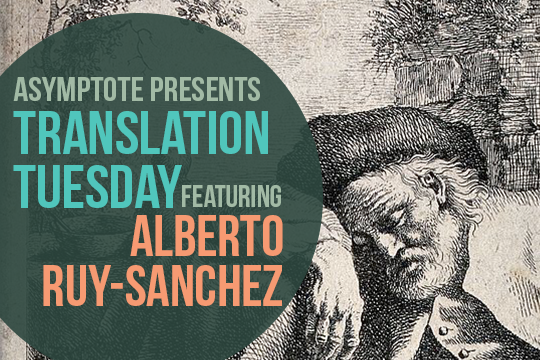The feelings of guilt and uncertainty that dominate this stand-alone addendum to Alberto Ruy-Sanchez’s 1987 novel, Los demonios de la lengua, wrestle with the tension between religion and eroticism that was central to the author’s Jesuit upbringing. The story’s prose-poetry style prioritises diction and imagery over narrative, making for a complex and rewarding read.
Among Apples
Not words but serpents emerged from his mouth. And some of these vipers had the heads of goats, of iguanas, salamanders, toads; they were eagles without wings, fish without rivers, tongues without saliva. One tongue divided in two, in three, in ten, in six times one hundred and eleven nightmares. And the odor that emanated from these tongues, reminiscent of the rotten fish that serve as a delicacy in Sweden and an omen of tragedy in Denmark, was so dense as to be visible—and it looked back at us. It was a cloud with eyes, horns, jaws, a bristly beard and pointed ears. It looked like Satan on the verge of unleashing his fury, but it was only the scent of Don Marcelino’s breath as he dozed at midday.

